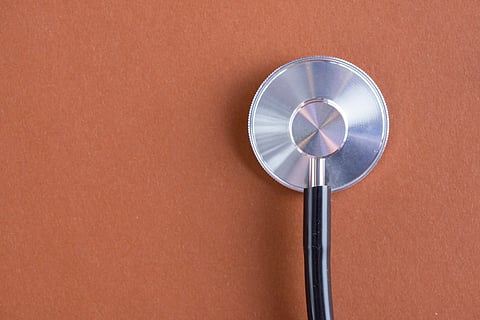

The stethoscope, long regarded as a timeless symbol of healthcare, is entering a new era with artificial intelligence (AI). Researchers at Imperial College London and Imperial College Healthcare NHS Trust have trialed an AI-powered stethoscope capable of detecting heart failure, heart valve disease, and irregular heart rhythms almost instantly.
The study, TRICORDER (Triple cardiovascular disease detection with an AI-enabled stethoscope), was conducted across more than 200 primary care practices in London, covering a population of 1.5 million. Over 12,700 patients with symptoms such as fatigue, breathlessness, or leg swelling were assessed using the AI stethoscope, and results were compared with practices that did not use the device.
Key findings:
Patients examined with the AI stethoscope were 2.33 times more likely to be diagnosed with heart failure within 12 months.
They were 3.45 times more likely to be diagnosed with atrial fibrillation.
They were 1.92 times more likely to be diagnosed with heart valve disease.
However, about 70% of practices stopped regular use after a year, highlighting the need for better integration into clinical workflows. Importantly, around two-thirds of patients flagged for possible heart failure were later cleared following confirmatory tests like blood work or echocardiography.
Developed by US-based Eko Health, this smart stethoscope combines two diagnostic tools:
A microphone array that captures heart sounds (phonocardiogram).
A single-lead ECG that records electrical activity.
The data is transmitted to the cloud for AI-driven analysis, with results displayed on a smartphone. Its algorithms are trained on thousands of patient datasets, enabling detection of subtle abnormalities. A dedicated algorithm also identifies atrial fibrillation, often silent yet treatable with blood thinners.
Heart failure is often identified late, usually during emergency hospital visits. Early diagnosis allows patients to start treatment sooner, improving quality of life and outcomes.
Dr. Sonya Babu-Narayan, Clinical Director at the British Heart Foundation, called the innovation “an elegant upgrade of the 200-year-old stethoscope for the 21st century,” stressing its role in preventing late-stage diagnoses.
Prof. Mike Lewis, Scientific Director at the National Institute for Health and Care Research, said, “This tool could be a real gamechanger, empowering GPs to diagnose earlier and tackle major cardiovascular diseases in the community.”